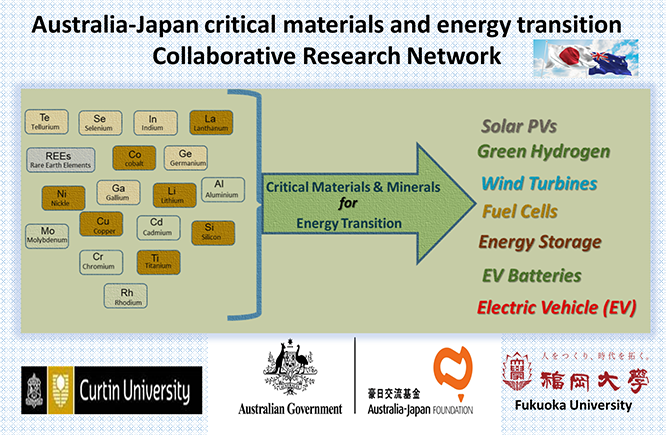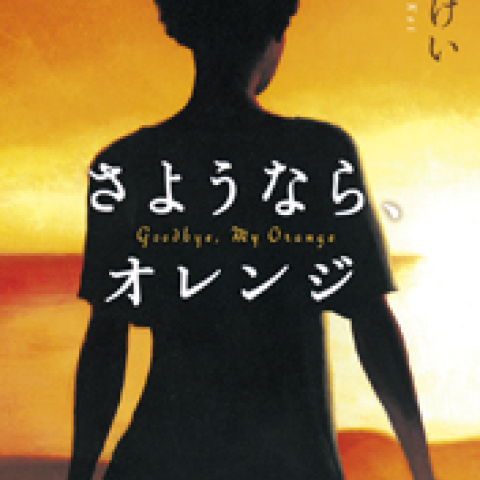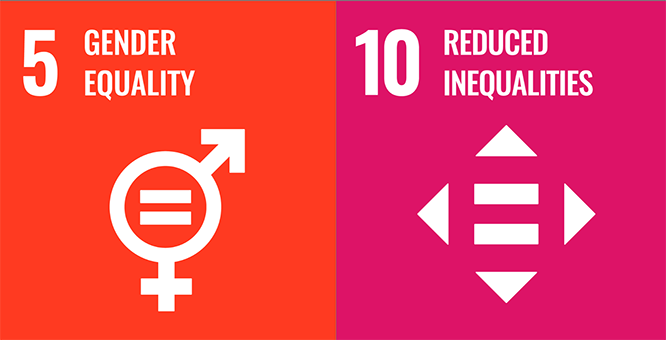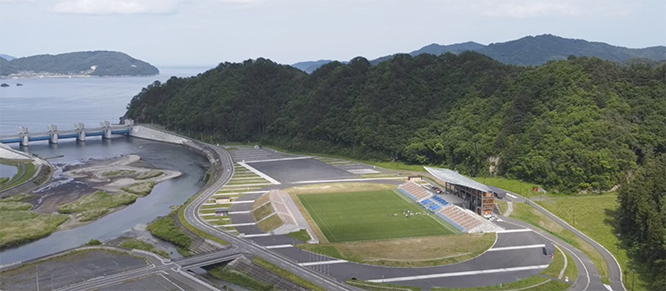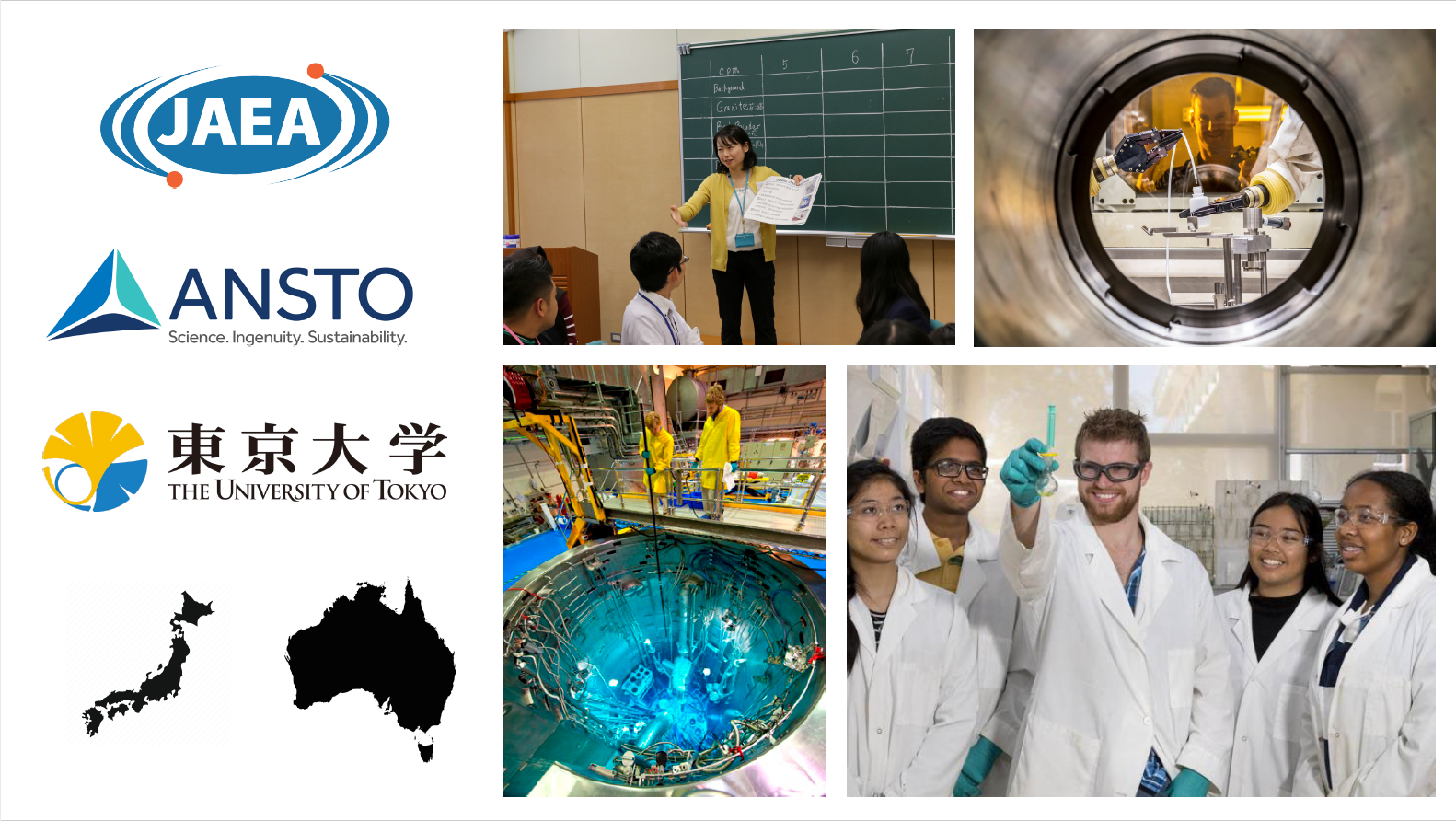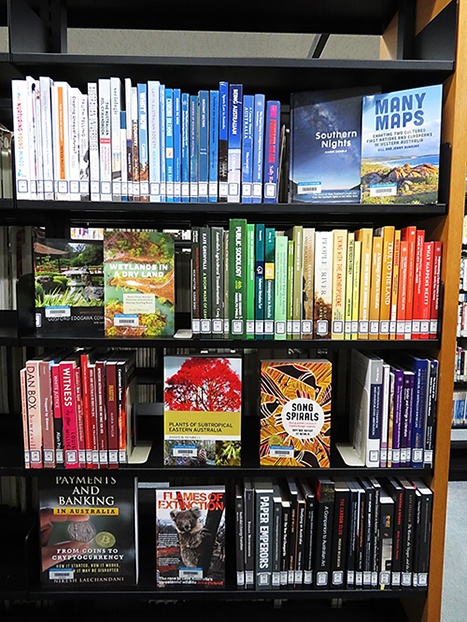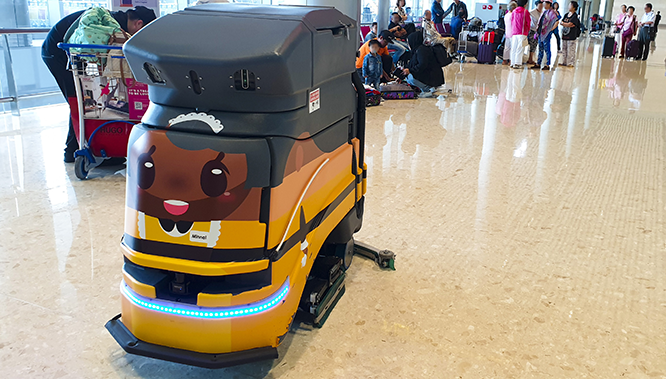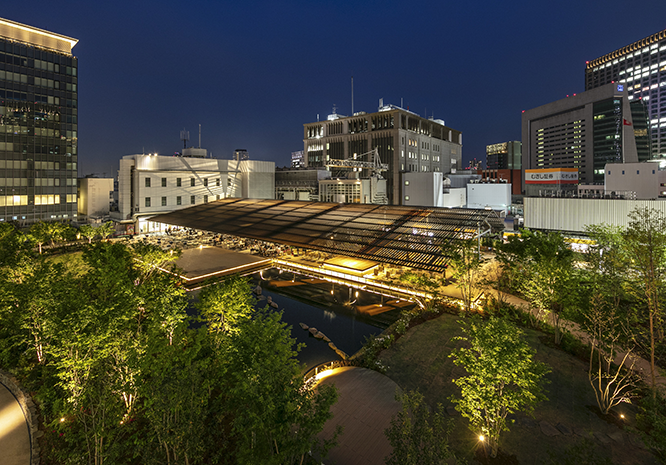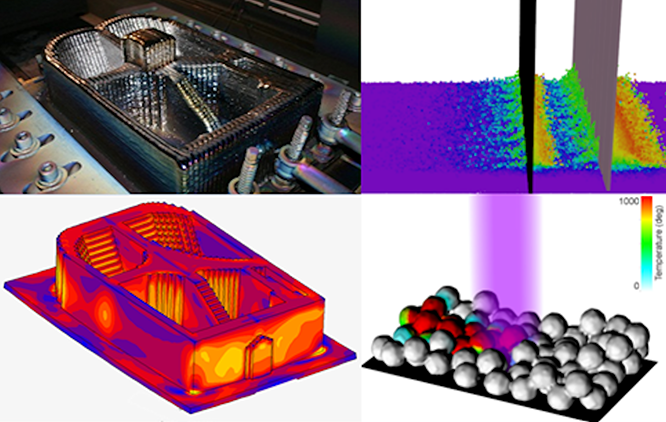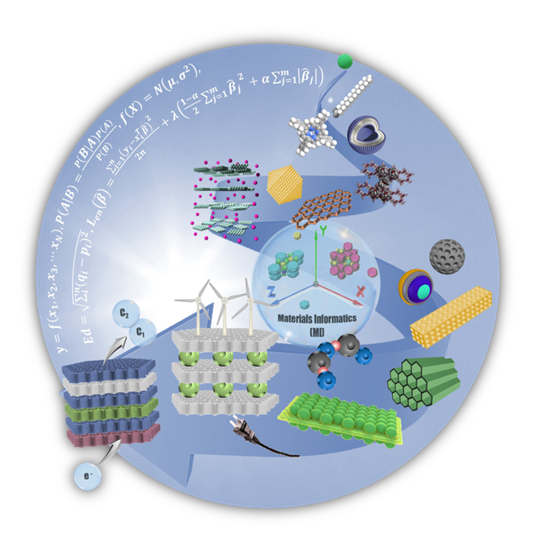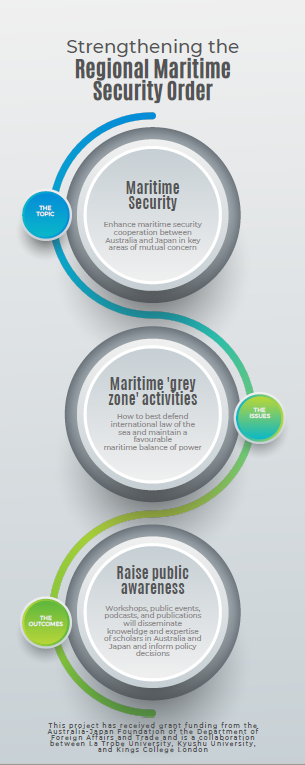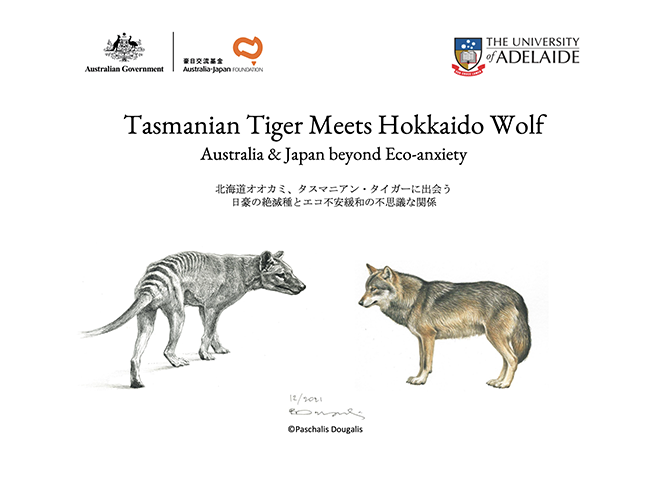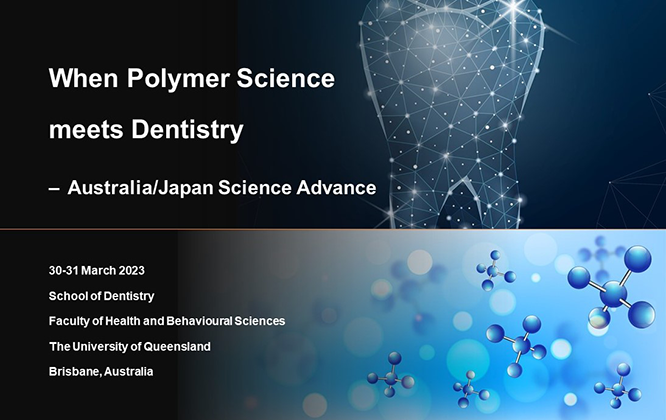Projects
- AGWA's Institute of Contemporary Asian Art – Japan Programs
- Australia and Japan in the Age of Uncertainty
- Australia/Japan Baseball Friendship Series
- Australia-Japan critical materials and energy transition Collaborative Research Network
- Australia-Japan Judo Exchange
- Australia-Japan Science and Innovation partnership
- Australian Artist Samara Hersch's 'Body of Knowledge' at Kyoto Experiment
- Australian innovations for value-chain-integrity and brand “Australia” for Japanese consumers
- Biennial Conference of the National Federation: New Frontiers
- Border-Crossing Australian and Japanese Literature: Literary Exchange as Cultural Diplomacy
- Building a foundation for collaboration on gender equality: Japanese–Australian connections
- Development of Lifesaving Patrol Competition in Japan
- Disaster Risk Reduction in Destinations: Approaches from Japan and Australia
- Emerging Japanese-Australian Female Leader Program
- Engaging next-generation nuclear science professionals in Australia and Japan
- Enhance the collection of the Library, updating the digital archive
- Enhancing Australia-Japan Cooperation: New Approaches to Minilateralism
- Integrating Indigenous Australian Knowledge and Japanese Language Learning
- Japanese and Australian perspectives on robots in public space
- Landscape Architects as Change Makers
- Re-centring Australian Contributions to the Occupation of Post-WWII Japan
- Scientific exchange: Metal additive manufacturing
- Smart Nanotechnologies: Towards Sustainable Alliance and Opportunities for Future Engineers
- Strengthening the Regional Maritime Security Order
- Tasmanian Tiger Meets Hokkaido Wolf: Australia and Japan beyond Eco-anxiety
- UQ-Blue: Promoting Cyber Security Sector Diversity and Bilateral Interdisciplinary Research
- When Polymer Science meets Dentistry - Australia/Japan Science Advance
AGWA's Institute of Contemporary Asian Art – Japan Programs
Grantee: Art Gallery of Western Australia
AJF grant amount: $35,000
Priority area: Society, culture and sport
Country location: Australia, Japan
Project description
The Simon Lee Foundation Institute of Contemporary Asian Art (SLF ICAA) is a major new creative and curatorial initiative at The Art Gallery of Western Australia (AGWA).
Generously supported by the Simon Lee Foundation, this visionary project will enrich and deepen AGWA's connections with contemporary art practices and cultural thinking in Asia and its diaspora communities.
Through an integrated program of research, digital projects, exhibitions, residencies, and collection development, SLF ICAA will present new and notable Asian artists, and foster the exchange of art and ideas throughout Western Australia and the wider region in partnership with our global institutional peers.
SLF ICAA is AGWA's creative and curatorial initiative dedicated to supporting contemporary Asian artists and fostering the exchange of art and ideas throughout Western Australia and the wider Asian region. Our projects are presented throughout AGWA's galleries in order to deepen the Gallery's connections with contemporary art practices and cultural thinking in Asia.
Key dates
| Activity or Event | Location | Expected dates |
|---|---|---|
| Exhibition opening - I have not loved (enough or worked) exhibition with Daisuke Kosugi, Lieko Shiga, Rinko Kawauchi | The Art Gallery of Western Australia | 17/09/2022 |
| Media event – I have not loved (enough or worked) exhibition | The Art Gallery of Western Australia | 20/09/2022 |
| Exhibition opening - Yoshitomo Nara solo exhibition | The Art Gallery of Western Australia | 24/02/2023 |
| Media event – Yoshitomo Nara exhibition | The Art Gallery of Western Australia | 24/02/2023 |
| Community public program with Yoshitomo Nara | The Art Gallery of Western Australia | 24/02/2023 - 24/06/2023 |
Social media and website
- Facebook: The Art Gallery of Western Australia – AGWA
- Instagram: @artgallerywa
- Website: Simon Lee Foundation
Australia and Japan in the Age of Uncertainty
Grantee: Australian Studies Association of Japan
AJF grant amount: $25,000
Priority area: Education and Australian studies
Country location: Japan
Project description
This project consists of two sessions in the ASAJ annual conference to be held in June 2023 at Kanagawa University.
The first session, “The AUKUS and its implications” will discuss the pros and cons of the AUKUS security arrangement in the rapidly changing security environment in the Asia-Pacific region. For that purpose, the panel consisting of Emeritus Professor Hugh White, Professor Tim Soutphommasane, Professor Frank Bongiorno and Professor Mie Oba (Kanagawa University) will discuss wide-ranging issues from security to Australia's socio-political framework.
The second session will look into the most successful, yet lesser known, genre of the literary exports of Australia to Japan, children's/young adults/fantasy novels. The purpose of this session is to see why Australian children's/young adults/fantasy novels are popular in Japan and what sort of Australianness, if any, readers would find. The five-person panel consists of four leading literary translators, three of whom have translated many Australian novels, Ms Yuriko Momo (Patricia Wrightson), Ms Yumiko Sakuma (Emily Rodda and Jackie French) and Masaru Harada (Garth Nix), and Ms Ritsuko Sambe, who has translated many British and American titles including Rudyard Kipling and Professor Hiroe Suzuki (Kanagawa University). We expect a fascinating discussion.
Key dates
| Activity or Event | Location | Expected dates |
|---|---|---|
| Public symposia | Online / Yokohama | 17/06/2023 - 18/06/2023 |
| Video streaming available after symposia | Online | 01/08/2023 - 31/03/2024 |
Social media and website
- Facebook: Australian Studies Association of Japan
- Website: オーストラリア学会 - Australian Studies Association of Japan
Australia/Japan Baseball Friendship Series
Grantee: Adelaide Giants Baseball Pty Ltd
AJF grant amount: $30,000
Priority area: Society, culture and sport
Country location: Australia
Project description
Baseball players from some of the top universities in Japan are coming to Adelaide to play against the best young talent we have to offer in South Australia.
From November 23-28, three teams will play in a style of baseball called "Junko" at West Beach. It's a great chance to see how local talent matches up vs our welcomed guests from Japan.
It will be a real festival of baseball atmosphere in November as the tournament coincides with the Adelaide Giants' Australian Baseball League home opener vs the Melbourne Aces. Games will be Japanese themed, with Japanese food and presentations, and a real cultural learning experience for our local fans.
This is the second time this tournament has happened, the last being in 2019. It will further enhance and develop the strong bond we have formed with our friends from Japan and hope it lays the foundation for many years to come.
The next steps in our relationship will be for the Adelaide Giants to send a team (both men and women) to play some games in Japan!
Key dates
| Activity or Event | Location | Expected dates |
|---|---|---|
| Opening ceremony | West Beach, SA | 24/11/2022 |
| University visit | City, SA | 25/11/2022 |
| Primary school visit | Glenelg, SA | 24/11/2022 |
| Games | West Beach, SA | 24/11/2022 - 26/11/2022 |
| Japan Day celebration | West Beach, SA | 26/11/2022 |
| Closing ceremony | West Beach, SA | 26/11/2022 |
Social media and website
- Facebook: @AdelaideGiants
- Instagram: adelaidegiants
- Website: Adelaide Giants Baseball
Australia-Japan critical materials and energy transition Collaborative Research Network
Grantee: Curtin University
AJF grant amount: $20,000
Priority area: Scientific innovation
Country location: Australia, Japan
Project description
Western Australia School of Mines: Minerals, Energy and Chemical (WASM:MECE) – Curtin University (Australia) and Fukuoka University (Japan) will establish jointly the first collaborative research network for critical materials and energy transition (CM&ET) between Australia and Japan.
The focus will be on the development of new avenues to foster the advanced techniques in CM&ET for addressing global energy and environmental challenges via guest lectures and joint workshops facilitated by the two universities. The network will bring together leading experts from Australia and Japan to discuss the opportunities and challenges of CM&ET facing Australia and Japan and explore future areas of research and industry collaboration.
Over a one-year period (2023-2024), the project will comprise two one-day workshops (Australia & Japan) followed by a visit to Fukuoka University showcasing Australian expertise and competencies to Japanese early career researchers and post/graduate students.
The project will increase awareness and encourage Australian and Japanese researchers/companies to participate in joint funded projects and exchange programs and establish long lasting professional relationships with globally recognized organisations.
Key dates
| Activity or Event | Location | Expected date |
|---|---|---|
| Workshop at Fukuoka University | Fukuoka, Japan | 24/02/2023 |
| Workshop at Curtin University | Perth, Australia | 03/07/2023 |
| Visiting professor to Fukuoka University | Fukuoka, Japan | 08/01/2024 - 13/01/2024 |
Social media and website
- Facebook: Australia-Japan Collaborative Research Network
- Website: WA School of Mines: Minerals, Energy and Chemical Engineering | Curtin University
Australia-Japan Judo Exchange
Grantee: Judo Federation of Australia Limited
AJF grant amount: $50,000 (Yr 1 - $20,000, Yr 2 - $20,000, Yr 3 - $10,000)
Priority area: Society, culture and sport
Country location: Australia, Japan
Project description
Judo was founded in Japan in 1882 and remains its most popular sport. Japanese culture is deeply embedded in judo, and the sport is played widely across Australia. With Australia hosting the Olympics in 2032, this is a timely opportunity to use a shared passion for judo to strengthen collaboration between Australia and Japan.
The Australia-Japan Judo Exchange (AJJE) will build links between judo clubs, coaches and athletes in Australia and Japan, and develop a pipeline of coaches to grow the sport and create public awareness of the strong bilateral relationship. Targeting regional judo clubs where international exposure is minimal, AJJE will facilitate a series of reciprocal cultural and immersion initiatives for aspiring judo coaches in both countries. This will build the capacity of coaches in both countries and foster partnerships between clubs.
Participants will gain a deeper awareness of each other's culture through an immersion experience and build deep people-to-people ties. By creating formal sister-club partnerships to allow further exchanges between coaches, athletes and the wider-judo community, judo will be used as a vehicle to encourage deeper cross-cultural skills and build people-to-people links and institutional ties that will endure beyond the tenure of the project.
Key dates
| Activity or Event | Location | Expected dates |
|---|---|---|
| Public launch of AJJE | Perth | 28/10/2022 |
| Japanese coaches Visit Sydney/Brisbane | Sydney/Brisbane | 15/03/2023 - 31/03/2023 |
| Announce sister-club partnerships | Virtual | 28/10/2023 |
| Australian coaches visit Japan | Tokyo | 01/12/2023 - 14/12/2023 |
| Australian coaches visit Japan | Tokyo | 01/04/2024 - 09/04/2024 |
| Japanese coaches visit Perth/Brisbane | Perth/Brisbane | 21/10/2024 - 28/10/2024 |
| Announce sister-club partnerships | Perth/Brisbane | 28/10/2024 - 28/10/2024 |
| Australian coaches visit Japan | Tokyo | 01/04/2025 - 09/04/2024 |
| Announce sister-club partnerships | Virtual | 28/10/2025 - 28/10/2025 |
Social media and website
- Facebook: Judo Australia
- Instagram: judoaus
- Website: Judo Australia
Australia-Japan Science and Innovation partnership
Grantee: University of Canberra
AJF grant amount: $40,000
Priority area: Scientific innovation
Country location: Australia
Project description
The Australia-Japan Science and Innovation partnership conference will be held in early March 2023 in Cairns. It will explore opportunities and collaboration between the two countries. It will bring together researchers from diverse backgrounds and fields of research to catalyze the collaborations needed to enrich the strong bilateral science and research relationship between Australia and Japan under the following themes:
- Health
- Advanced materials and manufacturing
- Energy
- Food
- Environment
- Large research infrastructures
- Relationships, institutions and society
Key dates
| Activity or Event | Location | Expected dates |
|---|---|---|
| JSPSAAA Conference | Cairns | 29/03/2023 - 31/03/2023 |
Social media and website
Australian Artist Samara Hersch's ‘Body of Knowledge' at Kyoto Experiment
Grantee: Kyoto Experiment: Kyoto International Performing Arts Festival Executive Committee
AJF grant amount: $17,720
Priority area: Society, culture and sport
Country location: Japan
Project description
Samara Hersch's practice explores the intersections among different communities. In this work, she focuses on the formation of knowledge around sex education and our bodies and attempts to create intergenerational conversations about topics spanning sexuality, aging, and death. The teens ask simple questions to the audience on the subject of “things about the body you'd want to ask an adult.” How would you respond to such frank inquiries, which might even make adults blush?
Although teenagers living in the Kansai area perform in this piece, you do not see them on stage. This work of participatory theater begins with chairs arranged in a circle, twelve unknowing audience members, and the ringing of cellphones. It proceeds to unfold through the audience's conversation with the teens on the other end of the line.
Through their conversations with the teenagers, the audience members encounter various political and social perspectives regarding the body and its effect on others and the world at large. On stage, the hierarchies between categories like adult/child, teacher/student, and performer/audience get dismantled, and the positions begin to intersect. There, alternative methods for sharing our knowledge and wisdom may be revealed.
Key dates
| Activity or Event | Location | Expected dates |
|---|---|---|
| Performances and workshops | Kyoto Art Centre | 01/10/2022 - 10/10/2022 |
Social media and website
- Facebook: Kyoto Experiment
- Instagram: kyotoexperiment
- Website: Kyoto Experiment | Samara Hersch
Australian innovations for value-chain-integrity and brand “Australia” for Japanese consumers
Grantee: University of Adelaide
AJF grant amount: $25,000
Priority area: Economic diplomacy and geopolitics
Country location: Australia, Japan
Project description
Where our food comes from is becoming an increasing concern for us all. Pioneering agri-tech companies using blockchain technology and/or other technologies help to address issues of food origin. We are a research team consisting of academics from both Australia and Japan who are seeking to stimulate discussions on how and where blockchain technology can be further integrated into international supply chains.
We are planning a symposium to be held in Japan in April 2023 to enhance collaborations and engagements between Australian and Japanese consultants and scholars, as well as between Australian producers and Japanese consuming industries. Our aim is to demonstrate the higher value that Australian products can command, further enhancing trade and increase export opportunities for Australian producers in Japan. In this way, we believe we can increase Japanese consumer confidence in Australian sourced food products and boost bilateral relationships between the two countries.
Key dates
| Activity or Event | Location | Expected date |
|---|---|---|
| Track my food symposium | Japan | April 2023 |
Social media and website
- YouTube: trackmyfood
- Website: trackmyfood.org
Biennial Conference of the National Federation: New Frontiers
Grantee: The National Federation of Australia Japan Societies Inc
AJF grant amount: $25,000
Priority area: Economic diplomacy and geopolitics
Country location: Australia
Project description
The Biennial Conference of the National Federation of Australia-Japan Societies will be held in Adelaide in September 2022 with the theme of New Frontiers.
As the peak body for Australia-Japan societies in every state and territory of Australia, the National Federation of Australia-Japan Societies is pleased to provide this opportunity for participants from across our nation, as well as from Japan, to interact, make new contacts and renew old contacts, as well as to hear of the latest developments and trends in the fields of business, education and culture between our two countries.
The theme New Frontiers highlights the keynote focus of space, with a very high calibre of speakers.
The broad offering of sessions throughout the program makes this conference of interest to all, whether specialists in the field of space or not, and enables plenty of social interaction.
Key dates
| Activity or Event | Location | Expected dates |
|---|---|---|
| Conference of the National Federation of Australia Japan Societies | Adelaide | 16/09/2022 - 18/09/2022 |
Border-Crossing Australian and Japanese Literature: Literary Exchange as Cultural Diplomacy
Grantee: The University of Queensland
AJF grant amount: $16,632 (Yr 1 - $11,582, Yr 3 - $5,050)
Priority area: Education and Australian studies
Country location: Australia
Project description
This project innovatively profiles cultural exchange by exploring the recent surge of interest in contemporary Australia-Japan literary interaction as three different literary border crossing encounters: Japanese literary works with Australia-related themes; Australian literary works with Japan-related themes; and Australian literary works in Japanese translation.
The project brings together readers, translation industry professionals and literary academics/students in a hybrid (face-to-face and online) two-day symposium, with the potential for a global audience, hosted by the University of Queensland. A small exhibition will accompany the event. The award-winning author, Iwaki Kei, will be keynote speaker, with presenters and attendees invited largely from Australia and Japan. The symposium aims to facilitate dialogue between participants while developing bi-lateral cultural relationships with specific emphasis on broadening mutual understanding in both Japan and Australia of literary endeavour in each site.
Key dates
| Activity or Event | Location | Expected start date |
|---|---|---|
| Symposium | The University of Queensland | 29/06/2023 - 30/06/2023 |
| Exhibition | The University of Queensland | 28/06/2023 - 05/07/2023 |
| Production of edited book | The University of Queensland | 10/07/2023 - 30/09/2025 |
Social media and website
- Facebook: UQ School of Languages and Cultures
- Website: School of Languages and Cultures
Building a foundation for collaboration on gender equality: Japanese–Australian connections
Grantee: Monash University
AJF grant amount: $30,000
Priority area: Education and Australian studies
Country location: Australia, Japan
Project description
After the Australia-Japan Leaders Meeting Joint Statement in January 2022 reaffirmed a shared commitment to human rights in our region, this project will bring Japanese academics to Australia in early 2023. Part of a larger partnership project, we seek to build a foundation of exchange and collaboration between Japan and Australia through the development of a collaborative research network in the area of gender in/equality.
During the Japanese scholars' visit to Australia, we will host a virtual knowledge exchange event, which will be live streamed in English and Japanese, targeting academics, young researchers, policy makers and practitioners in both countries. This knowledge exchange will assist in responding to issues of violence against women and girls in our region, and will create evidence of two-way mobility with Japan, to improve educational cooperation and academic exchange in gender-related fields.
Our plan is to sustain this project beyond the grant period by developing new partnerships between universities over time, and to develop future research partnerships in areas related to gender in/equality in the bilateral context, mainly through webinars, future visits to institutions and postgraduate student exchanges or joint research supervision.
Key dates
| Activity or Event | Location | Expected dates |
|---|---|---|
| Visit to Harmony Alliance and UN Women | Canberra | 06/02/2023 - 07/02/2023 |
| Visit to Respect Victoria and Victoria's Family Violence Memorial | Melbourne | 08/02/2023 |
| Research workshop (project members only) | Melbourne | 09/02/2023 |
| Half-day mutual knowledge exchange workshop | Melbourne | 10/02/2023 |
Social media and website
- Facebook: Monash Gender and Family Violence Prevention Centre
- Website: Monash Gender and Family Violence Prevention Centre
Development of Lifesaving Patrol Competition in Japan
Grantee: Surf Life Saving Queensland
AJF grant amount: $60,000 (Yr 1 - $20,000, Yr 2 - $20,000, Yr 3 - $20,000)
Priority area: Society, culture and sport
Country location: Australia, Japan
Project description
Australia is the world-leader in “Patrol Competition”, a surf lifesaving surf sports event designed to test surf lifesavers' drowning prevention, rescue and resuscitation skills in a challenging and engaging competitive format.
In 2017-2019, the Australia-Japan Foundation supported the exchange of young surf lifesavers and officials between Australia and Japan to introduce the Patrol Competition event to Japanese surf lifesaving. This project now proposes to build on that program and the strong ties that it has endorsed between Australia and Japan, through the development of host clubs, competitors, coaches and officials in Japan, to embed and ensure the ongoing viability of the event in Japanese surf lifesaving competition.
It will promote Australia's image as the world-leader in surf lifesaving to young Japanese lifesavers and foster the values that Australia and Japan already share through a united culture of volunteerism, community service and dedication to the preservation of human life in the aquatic environment.
Key dates
| Activity or Event | Location | Expected dates |
|---|---|---|
| Australian delegation to participate in, and mentor at, Japan Branch Championships. | Japan | 01/04/2023 |
| Japanese delegation to observe and participate in the Surf Life Saving Queensland State Surf Rescue Championships. | Queensland, Australia | 18/02/2023 |
| Australian delegation to participate in, and mentor at, Japan Branch Championships. | Japan | 01/04/2024 |
| Japanese delegation to observe and participate in the Surf Life Saving Queensland State Surf Rescue Championships. | Queensland, Australia | 17/02/2024 |
| Australian delegation to participate in, and mentor at, Japan Branch Championships. | Japan | 01/04/2025 |
| Japanese delegation to observe and participate in the Surf Life Saving Queensland State Surf Rescue Championships. | Queensland, Australia | 22/02/2025 |
Social media and website
- Facebook: Lifesaving Patrol Competition and Surf Life Saving Queensland
- Instagram: lifesavingqld
- Website: lifesaving.com.au and jla-lifesaving.or.jp/en/
Disaster Risk Reduction in Destinations: Approaches from Japan and Australia
Grantee: Tohoku University
AJF grant amount: $25,000
Priority area: Society, culture and sport
Country location: Australia, Japan
Project description
Due to Japan's geographic environment, the country is vulnerable to typhoons, tsunamis, earthquakes, floods, among many various natural hazards. At the same time, prior to the COVID-19 pandemic, the country experienced a surge in tourism growth. The country was also selected to host major tourism events such as the 2019 Rugby World Cup and the 2020 Tokyo Olympics. Such large events also run the risk of exposing tourists and host communities to hazards, as experienced during the 2019 Rugby World Cup when one of the venues was affected by typhoons and flood damage.
Our project examines how tourism stakeholders, such as local governments, businesses, and academia, prepare, respond and recover from natural hazards and disaster events. It is hoped that the experiences and knowledge of disaster and tourism planning in Japan can assist Australia in its future mega tourism events, such as the upcoming Olympics in Brisbane. Likewise, Australia has a long history and considerable experience as a popular tourism destination. Its experiences in tourism planning can also help Japanese stakeholders as well.
Key dates
| Activity or Event | Location | Expected dates |
|---|---|---|
| Australia symposium | Brisbane, Australia | 01/08/2023 - 03/09/2022 |
| Japan symposium | Sendai, Tokyo | 04/04/2023 - 08/09/2022 |
Social media and website
Emerging Japanese-Australian Female Leader Program
Grantee: Deakin University
AJF grant amount: $19,490
Priority area: Economic diplomacy and geopolitics
Country location: Australia, Japan
Project description
Recognising the importance of leadership diversity and aiming to amplify the impact of emerging female leaders in Japan and Australia, this program allows for the exploration and development of critical leadership competencies.
Over a six-month period, this program aims to develop and support emerging, female leaders through meaningful participant engagement in dynamic, experiential, virtual workshops. Throughout the course of the program, participants will have the opportunity to develop leadership skills through virtual workshops, online guest speaker sessions and structured mentorship opportunities. This program has been developed by Deakin Business School, in partnership with Keio Business School and the Graduate School of Business Kyoto.
Key dates
| Activity or Event | Location | Expected dates |
|---|---|---|
| Guest speaker | Virtual - open | 14/12/2022 |
| Launch event | Virtual - participants only | 07/12/2022 |
| Skills session - self-awareness | Virtual - participants only | 18/01/2023 |
| Guest speaker | Virtual - open | 15/03/2023 |
| Guest speaker | Virtual - open | 17/05/2023 |
| Skills session - communication | Virtual - participants only | 29/03/2023 |
| Skills session - resilience | Virtual - participants only | 15/02/2023 |
| Skills session - building teams | Virtual - participants only | 19/04/2023 |
Social media and website
- Linkedin: linkedin.com/groups/9247595/
Engaging next-generation nuclear science professionals in Australia and Japan
Grantee: Australian Nuclear Science and Technology Organisation (ANSTO)
AJF grant amount: $20,000
Priority area: Education and Australian studies
Country location: Australia, Japan
Project description
ANSTO, in collaboration with the Japanese Atomic Energy Agency (JAEA) and the University of Tokyo, will be facilitating workshops with school students, university students and secondary school teachers from Australia and Japan to:
- Improve public perceptions of nuclear science and improve understanding of the applications and benefits of nuclear
- To showcase nuclear science as a career option with opportunities for international collaboration for young people in Australia and Japan
- To provide secondary science teachers with training and resources to improve the teaching of nuclear science in Australian and Japanese schools.
Key dates
| Activity or Event | Location | Expected dates |
|---|---|---|
| Presentation to Australian school students | Online and at the ANSTO Discovery Centre, Sydney | 01/11/2022 - 28/02/2022 |
| Presentation to Japanese schools | Online | 01/11/2022 - 11/12/2022 |
| Workshop with Australian secondary school teachers | Online | 30/11/2022 |
| Presentation to Australian undergraduate university students | Online | 28/11/2022 |
| Presentation to Australian postgraduate university students | Online | 17/10/2022 |
Social media and website
- Facebook: ANSTO
- Website: ANSTO | Science. Ingenuity. Sustainability and Japan Atomic Energy Agency, Nuclear Human Resource Development Center
Enhance the collection of the library and updating the digital archive
Grantee: Otemon Gakuin University
AJF grant amount: $10,000
Priority area: Education and Australian studies
Country location: Japan
Project description
The Australia Library of the Otemon Gakuin University Library is the only dedicated collection of literature on Australia in Japan. In order to serve as the ultimate domestic information centre on Australia in Japan, we plan to purchase non-Japanese books in the area where Australia has done eminent research and it has had a lot of attention in recent years.
The Australia Library created “Digital Archive of Japanese Records and Photographs Related to Australia”
We will continue to collect materials such as records and photographs that Japanese who went to Australia left there to expand the digital archive. Updating and making the digital archive available free of charge on the internet will contribute to academic research and social education and promote mutual understanding and good relations between the people of both Japan and Australia in the future.
Key dates
| Activity or Event | Location | Expected dates |
|---|---|---|
| Acquisition of materials on Australia | Ibaraki, Japan | 01/10/2022 - 30/06/2023 |
| Updating the digital archive | Ibaraki, Japan | 01/10/2022 - 30/06/2023 |
Social media and website
- Facebook: Otemon Gakuin University
- Website: library.otemon.ac.jp/australia/
Enhancing Australia-Japan Cooperation: New Approaches to Minilateralism
Grantee: Australian National University
AJF grant amount: $20,000
Priority area: Economic diplomacy and geopolitics
Country location: Australia, Japan
Project description
In an increasingly contested geopolitical environment, Australia and Japan have sought to employ “minilateral” groupings to realise their aim of a free and open Indo-Pacific. Both countries have supplemented their bilateral ties and their multilateral interactions with these smaller minilateral arrangements. Forums such as the Trilateral Strategic Dialogue, the Quadrilateral Security Dialogue, the Australia-Japan-India trilateral, and the potential for Japanese engagement with AUKUS have gained a high priority. These minilateral groupings are seen to afford advantages in terms of small group consensus, practical outcome orientation, and low transaction costs.
As such, this joint project led by scholars from the Australian National University, University of Sydney, and Ritsumeikan University aims to provide a better understanding of how these “minilateral” groupings might be usefully deployed in future. Through engagement with academic experts, thinktank analysists and policymakers, the project unpacks Australian-Japanese participation in minilaterals to date and so delivers a comparative analysis of the two countries' national and combined achievements in utilising this form of strategic cooperation. This should lead not only to a greater public awareness of the Australia-Japan partnership but also assist practitioners to better understand how to engage in minilateral cooperation.
Key dates
| Activity or Event | Location | Expected dates |
|---|---|---|
| Preparatory meeting | Online | 04/10/2022 |
| Workshop | Canberra | 06/02/2023 - 08/02/2023 |
| Workshop | Osaka | 12/04/2023 - 14/04/2023 |
| Report launch | Canberra | 01/11/2023 |
| Public seminar | Canberra | 01/11/2023 |
| Policy blogs | Online | 13/02/2023 - 01/12/2023 |
Social media and website
- Facebook: AusJpnMinilateral
- Website: International Relations
Integrating Indigenous Australian Knowledge and Japanese Language Learning
Grantee: The University of Melbourne
AJF grant amount: $25,000
Priority area: Education and Australian studies
Country location: Australia, Japan
Project description
Indigenous knowledge and culture is a Cross-Curriculum Priority within the Australian Curriculum and a shared responsibility for all teachers, including those who teach languages. This project will support teachers of Japanese to work more confidently with how they can bring Australian Indigenous knowledge and culture into school-based Japanese language programs.
Led by the Melbourne Graduate School of Education in partnership with the Japanese Language Teachers' Association of Victoria (JLTAV), the Modern Languages Teachers' Association of Victoria (MLTAV), the Japan Pedagogy Association for Content and Language Integrated Learning (J-CLIL), the project will bring Japanese language teachers together to co-create sharable online resources and teacher support notes. The outcome will enable the teaching of Australian Indigenous knowledge, while students also learn Japanese.
Resources will be based on the needs of participating teachers, and the university-based expertise includes support to find and select appropriate Indigenous knowledge source materials, and knowledge of innovations for how language teaching can be successfully combined with learning content from other curriculum areas, also known as “content and language integrated learning” (CLIL)). Resources will be shared through language teacher professional associations.
Key dates
| Activity or Event | Location | Expected dates |
|---|---|---|
| Workshop 1: Collaborative planning workshop with Japanese language teachers | Melbourne | 27/03/2023 |
| Workshop 2: Development workshops to introduce a framework for working with content and language | Melbourne | 26/05/2023 - 26/05/2023 |
| Workshop 3: Continue developing the resources that began development from Workshop 2 | Melbourne | 01/09/2023 |
| Final launch event: Public online launch event to showcase and promote take up of the digital resources | Online | 04/12/2023 |
Social media and website
- Website: CLIL Teacher Education Lab
Japanese and Australian perspectives on robots in public space
Grantee: Monash University
AJF grant amount: $13,496
Priority area: Scientific innovation
Country location: Australia, Japan
Project description
How do robots shape how we experience our cities? Although robots are only beginning to enter Australian public spaces, in Japan they are much more commonplace. Yet despite their presence in both countries, we know very little about how they contribute to the feel of our public spaces, and what people think when they encounter them on the footpath, shopping centre, hotel or hospital.
Monash University researchers have been focusing on how robots shape the feel of our shared spaces, and the implications for robot design and use, and for public policy. By sharing this innovative Australian research, and learning from valuable Japanese perspectives, we hope to discover how we can live with robots in our everyday lives, now and into the future.
Key dates
| Activity or Event | Location | Expected dates |
|---|---|---|
| Public talk | Tokyo | 06/12/2022 |
| Public talk | Melbourne | 10/05/2023 |
Social media and website
- Website: Emerging Technologies Research Lab
Landscape Architects as Change Makers
Grantee: Royal Melbourne Institute of Technology (RMIT)
AJF grant amount: $22,120
Priority area: Society, culture and sport
Country location: Australia, Japan
Project description
RMIT University and The University of Melbourne will partner with the Japanese Landscape Architect Union (JLAU) to deliver a bilateral exhibition to be held in Melbourne and Tokyo between April and June 2023.
This exhibition investigates the strategies used by Japanese and Australian landscape architects to implement innovative design outcomes that respond to the boom-bust economic conditions, cultural specificity of urbanism and climatic challenges in their region. Focusing on award winning designers, expanded by contributions from a new generation of designers, the exhibition mixes multi-media and print to present design voices, design drawings, immersive footage of designs and community responses. A designer exchange will accompany the exhibition, bringing two Japanese designers to Melbourne and two Australian designers to Tokyo. The exhibition and floor talks will promote a cross-cultural and inter-generational dialogue exploring how designers influence government, developers, and the community to achieve positive contributions to environmental, economic, and cultural futures.
By revealing the intricacies of design processes, this project develops deeper understandings of how Japanese and Australian landscape architects act as change agents. With mounting global pessimism towards climate change and social inequities, this project presents a positive message, highlighting multiple ways that individual designers can make a difference.
Social media and website
- Facebook: larmit
- Instagram: rmit_la
- Twitter: RMIT_LA
- Website: RMIT Landscape Architecture
Re-centring Australian Contributions to the Occupation of Post-WWII Japan
Grantee: The University of Wollongong
AJF grant amount: $11,315
Priority area: Education and Australian studies
Country location: Australia, Japan
Project description
This collaborative online research project between students enrolled at the University of Wollongong and Sophia University in Tokyo will see both cohorts learn about Australian service personnel's participation in the Allied Occupation of Japan between 1945 and 1952.
Through participation in the project, the students will learn the importance of the period as a foundation for the present-day successful bilateral relationship as well as develop a more nuanced understanding of the occupation period. The project incorporates an online public webinar, student-led webinars and an exhibition of posters curated by students to be held at Sophia University in Tokyo. The exhibition will also include a series of photographs depicting a range of activities undertaken by Australian service personnel during their deployment.
Key dates
| Activity or Event | Location | Expected dates |
|---|---|---|
| Public lecture | Online | 17/04/2023 |
| Student discussions (weekly) | Online | 24/04/2023 - 23/05/2023 |
| Student presentations | Online | 05/06/2023 |
| Public lecture | Tokyo | 11/09/2023 |
| Exhibition | Sophia University, Tokyo | 11/09/2023 - 18/09/2023 |
Social media and website
- Website: Sophia University and University of Wollongong
Scientific exchange: Metal additive manufacturing
Grantee: CSIRO
AJF grant amount: $40,000 (Yr 1 - $20,000, Yr 2 - $20,000)
Priority area: Scientific innovation
Country location: Australia, Japan
Project description
Metal additive manufacturing (metal 3D printing) is an innovative manufacturing method that builds parts layer-by-layer. An energy source such as a laser beam, electron beam or arc plasma is used to melt a metal powder or wire to deposit each layer. Metal additive manufacturing can produce custom-designed parts, often with geometries and properties that are not possible using standard manufacturing processes.
CSIRO and the Joining and Welding Research Institute (JWRI) of Osaka University are researching and developing a range of metal additive manufacturing processes for application in industries including aerospace and biomedical manufacturing. The organisations have collaborated for almost 20 years on arc welding. A virtual meeting in April 2022 identified many areas of mutual interest in which the organisations have complementary skills. Building on this, CSIRO and JWRI researchers will visit each other's facilities to develop collaborative projects in metal additive manufacturing. This will improve R&D outcomes and create new links between Australian and Japanese industry and researchers.
Key dates
| Activity or Event | Location | Expected dates |
|---|---|---|
| Visit of CSIRO researchers to JWRI | Osaka University | 03/04/2023 - 07/04/2023 |
| Visit of JWRI researchers to CSIRO | CSIRO, Clayton, VIC | 11/03/2024 - 15/03/2024 |
Social media and website
- Facebook: CSIRO
- Instagram: csirogram
- Website: www.csiro.au
Smart Nanotechnologies: Towards Sustainable Alliance and Opportunities for Future Engineers
Grantee: The University of Queensland
AJF grant amount: $25,000
Priority area: Education and Australian studies
Country location: Australia, Japan
Project description
The project will create invaluable opportunities for undergraduate and postgraduate engineering students and early career researchers in both Australia and Japan who are coming from diverse backgrounds (e.g., researchers and students from non-English speaking background, female researchers/students studying in non-traditional fields).
During their stay a series of technical/engineering and non-technical activities such as lecture/seminar, workshop, hands-on experiments, site-visits, industrial field trips, cultural integration and networking will be conducted. Lecture/seminar topics will include advanced engineering & manufacturing technologies with a major focus on the Japanese smart cities' initiatives, automobiles, cutting-edge agro technologies, advanced functional materials for environmental, biomedical and renewable energy application and local culture. A couple of Japanese venture capitals will jointly facilitate industry tours. This project will bring many windows of opportunities for future engineers in both countries.
Key dates
| Activity or Event | Location | Expected dates |
|---|---|---|
| Materials Oceania conference | Gold Coast | 05/12/2022 - 08/12/2022 |
| Visit to industry | Nara and Saitama | 19/04/2023 - 22/09/2022 |
| Conference in Japan | Tokyo | 10/07/2023 - 14/07/2023 |
| Meeting with industry/students/ECR | Brisbane | 25/09/2023 - 28/09/2022 |
Social media and website
- Twitter: @EratoYamauchi
Strengthening the Regional Maritime Security Order
Grantee: La Trobe University
AJF grant amount: $20,000
Priority area: Economic diplomacy and geopolitics
Country location: Japan
Project description
Maritime geopolitical, geoeconomic and geolegal issues are important for understanding the emergence of an increasingly contested and uncertain regional security order in Asia. Maritime democracies such as Australia, Japan and United Kingdom have expressed shared interests in sustaining and promoting the existing maritime "rules-based order" in the region. Japan is Australia's most important strategic partner in Asia, and following Australia, the UK is the second state to sign a Reciprocal Access Agreement with Japan.
This project will bring together experts from Australia, Japan and UK for a two-day trilateral workshop to examine how these states understand contemporary maritime security issues in areas of mutual concern, such as archipelagic security, remote island defence, IUU (Illegal, Unreported and Unregulated) fishing, piracy, maritime ‘grey zone' activities and gaps in law of the sea, and environmental degradation. The project will also compare the interests and approaches of Japan, Australia, and the UK in engaging with Southeast Asian and Pacific states to develop their sovereign capabilities in the face of hybrid and ‘blue crime' challenges. The project will contribute to public and scholarly debates and provide recommendations on how trilateral cooperation may be strengthened in critical areas of maritime concern.
Key dates
| Activity or Event | Location | Expected dates |
|---|---|---|
| Workshop | Fukuoka, Japan | 18/04/2023 - 19/04/2023 |
| Public panel | Fukuoka, Japan (and online) | 19/04/2023 |
| Roundtable | Tokyo, Japan | 21/04/2023 |
| Production of Policy Brief | Melbourne, Australia | 01/05/2023 - 31/05/2023 |
| Op-eds produced for release in Japanese outlets | Fukuoka, Japan | 01/05/2023 - 31/05/2023 |
| Public event to launch Policy Brief | Melbourne, Australia (and online) | 14/06/2023 |
| Press releases | Australia and Japan | 01/06/2023 - 14/06/2023 |
| Podcast recording/published | Fukuoka and Australia | 18/04/2023 - 30/06/2023 |
Social media and website
- Website: La Trobe Asia, La Trobe University
Tasmanian Tiger Meets Hokkaido Wolf: Australia and Japan beyond Eco-anxiety
Grantee: The University of Adelaide
AJF grant amount: $25,000
Priority area: Society, culture and sport
Country location: Australia, Japan
Project description
Over 60 percent of young people worldwide are impacted by ecological and climate anxiety (eco-anxiety). Are you the same? This project aims to educate and empower young people in Australia and Japan to reduce eco-anxiety.
We aim to counter these feelings of despair and hopelessness with an educational film including stories about the extinct Tasmanian tiger and Hokkaido wolf. Positive stories within the sad history of these animals will be highlighted. While remaining critical of past mistakes, we will ask how these animals could help you reimagine and plan a sustainable future.
The film will be shown in both countries at an international symposium, educational institutions, and AnimeGo!, a community event in Adelaide. After viewing the film, using social media, you can communicate with other viewers in both countries, sharing your thoughts and ideas about the film, extinction, and other existential issues we face today. We hope that you find the film transformative and the international communication empowering. Our main aim is that the film and cross-cultural communication will help you reduce eco-anxiety by learning about an innovative way of reimagining a different future.
Key dates
| Activity or Event | Location | Expected dates |
|---|---|---|
| International symposium | Tottori-Adelaide | 31/08/2023 |
| School visit | Tottori | 07/09/2023 |
| University workshop | Adelaide | 07/09/2023 |
| Community event: AnimeGo! | Adelaide | 29/10/2023 |
Social media and website
UQ-Blue: Promoting Cyber Security Sector Diversity and Bilateral Interdisciplinary Research
Grantee: The University of Queensland
AJF grant amount: $20,000
Priority area: Scientific innovation
Country location: Australia, Japan
Project description
Cybersecurity is considered a national security issue in Australia and Japan, and both countries are collaborating at the government-to-government level to develop and maintain an open, free and secure cyberspace, whilst non-government actors play an important enabling the role in safeguarding both countries' data sovereignty, economic prosperity and social cohesion. An ever-increasing range of cyber threats requires increased awareness, and knowledge exchange between like-minded countries on cyber security and e-safety issues.
This project augments the close and enduring government-to-government relationship between Japan and Australia, with a focus on what universities and think-tanks can contribute to overall cyber security resilience and exchange. The project aims to increase awareness through building people-to-people linkages between research communities, industries, and students. The project will showcase excellence and expertise in cyber security capabilities in Japan and in Australia by covering topics such as: national security and cyber policies for enhancing regional cyber security capabilities; working towards a diverse workforce in cyber security; sharing of lessons learnt of the cyber security educational framework, interdisciplinary research, successful case studies, and cybercrime and cyber security strategies to host major events (e.g. Olympics).
Key dates
| Activity or Event | Location | Expected date |
|---|---|---|
| Round Table Panel Discussion: Supply Chain Cyber Security (automating cyber incidence responses to critical infrastructure) – COVID-19 has disrupted supply chains and increased cyberattacks and global threats to critical infrastructure. What initiatives will uplift security and resilience of critical infrastructure to ensure assets and essential services are safe and resilient? | Australia/Online | 10/05/2023 |
| Panel Discussion: Telecommunication Cyber Security – how can we build a more robust and secure telecom network? | Australia/Online | 10/05/2023 |
| Panel Discussion: Diversifying the Cybersecurity Ecosystem – what initiatives do we need to diversify the cyber security workforce? | Australia/Online | 10/05/2023 |
| Networking event | Australia/Online | 10/05/2023 |
Social media and website
- Facebook: UQ Engineering and Technology
- Instagram: uqengtech
- Website: UQ Cyber
When Polymer Science meets Dentistry- Australia/Japan Science Advance
Grantee: The University of Queensland
AJF grant amount: $20,000
Priority area: Scientific innovation
Country location: Australia, Japan
Project description
This project will initiate a two-way interaction between the University of Queensland School of Dentistry and the Institute for Catalysis (ICAT) at Hokkaido University. This Australia/Japan joint event will showcase recent nanomedicine research progress for polymer science and dentistry, particularly at the nanoscale. This project aims to facilitate gender equality in polymer science and dentistry at the nanoscale for both Australia and Japan.
Key dates
| Activity or Event | Location | Expected dates |
|---|---|---|
| Conference: When Polymer Science meets Dentistry- Australia/Japan Science Advance | UQ School of Dentistry | 30/03/2023 - 31/03/2023 |
Social media and website
- Facebook: UQ Health
- Website: School of Dentistry





